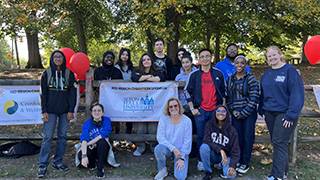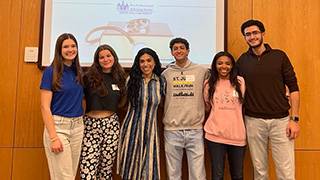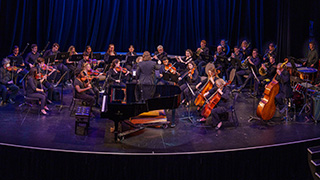Asian Studies Program Hosted High School Competition to Showcase AI's Influence on Chinese Culture and Language Education
Monday, April 29, 2024
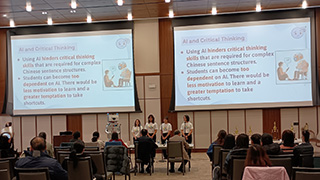
Chinese cultural project contest awards high school students for research.
On April 13, 2024, the Asian Studies Program partnered with the New Jersey Chinese Cultural Studies Foundation to host the 16th Chinese Cultural Project Contest in Bethany Hall. As finalists, seven teams of high school students competed for the $700 prize. They answered the question, "How Does Artificial Intelligence (AI) Impact the Learning of Chinese Language and Culture?" Students were encouraged to present their findings in both Mandarin and English.
For the first time, the competition was open to high schools in and beyond New Jersey. This year had two students from California. Participating schools included Watchung Hills Regional, Folsom High School, Columbia High School, Ridge High School, Rutgers Preparatory School, Bridgewater-Raritan High School, and Fort Lee High School.
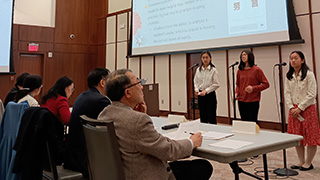 To provide evidence, students utilized AI-driven platforms like Duolingo, ChatGPT,
and Google Translate. They also collected quantitative data from surveys, enacted
skits, recited poetry, or made visual art. In their findings, the benefits of AI on
learning the Chinese language were that users can learn at a pace tailored to them,
applications make learning accessible, it helps users learn vocabulary, and it provides
instant feedback.
To provide evidence, students utilized AI-driven platforms like Duolingo, ChatGPT,
and Google Translate. They also collected quantitative data from surveys, enacted
skits, recited poetry, or made visual art. In their findings, the benefits of AI on
learning the Chinese language were that users can learn at a pace tailored to them,
applications make learning accessible, it helps users learn vocabulary, and it provides
instant feedback.
However, the participants have also found many setbacks when utilizing AI. Translation websites are too literal, subscriptions need money for full access to the application, people can be too reliant and not check the AI’s accuracy, and AI cannot comprehend complex characters or words that have historical/cultural meaning. Moreover, AI can improve cultural learning but also struggles with understanding cultural nuances. The main merit is that people can access information quickly and concisely through AI. But, learning Chinese culture through AI erases authenticity, it cannot convey cultural messages with real emotions, does not understand cultural-social nuances, the generation of photos and art are false, and it reinforces biases and stereotypes.
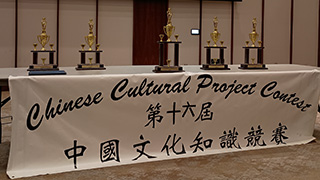 The competition sparked meaningful reflection on the role of advancing technology
in learning the Chinese language and culture. Students were engaged in not only presenting
their findings but answering thoughtful questions from judges. In the end, Columbia
High School secured first place with their interactive robot AI character, poem recitation,
tai chi, and live skit presentation.
The competition sparked meaningful reflection on the role of advancing technology
in learning the Chinese language and culture. Students were engaged in not only presenting
their findings but answering thoughtful questions from judges. In the end, Columbia
High School secured first place with their interactive robot AI character, poem recitation,
tai chi, and live skit presentation.
Categories: Arts and Culture

